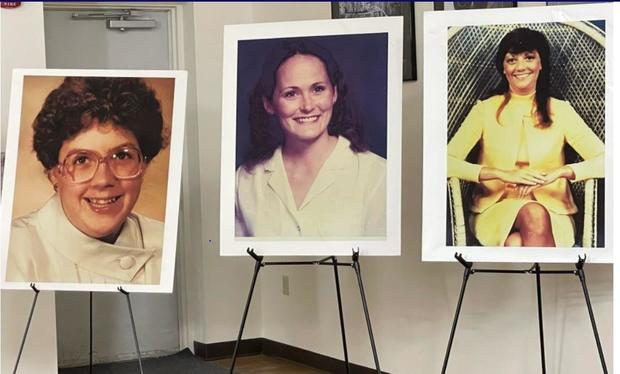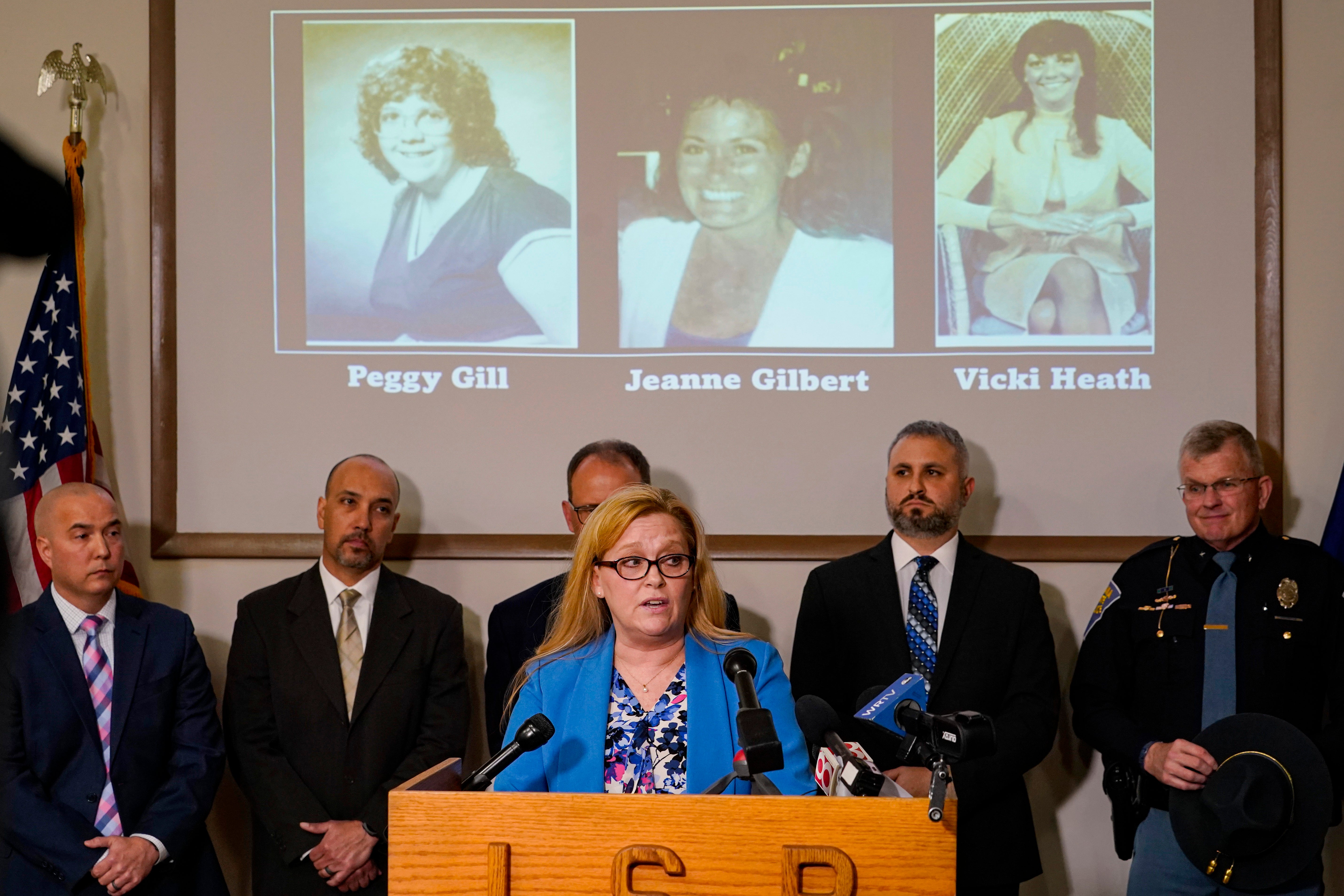How one serial killer evaded capture for more than three decades with a quiet, farmers-market life
DNA identified Harry Edward Greenwell, who died in 2013, as a 1980s serial killer, Sheila Flynn reports

No one expects to meet a serial killer at a farmers’ market.
Countless Midwestern customers, however, did exactly that.
Shockwaves were sent through communities across several states on Tuesday when police released the name of a suspect in the rapes and murders of at least three women in the late 1980s. They identified Harry Edward Greenwell, who died in 2013 in Iowa at the age of 68, as the man they believe to be the “I-65 Killer” or “Days Inn Killer”, as the previously unknown assailant had been nicknamed when he killed three young, female motel clerks more than 30 years ago.
Speaking exclusively to The Independent on Wednesday, Greenwell’s widow said even she was unaware of his horrific crimes.
Greenwell was a family man, a farmer, a do-gooder and a generous soul, according to his 2013 obituary; he died in Iowa after a battle with cancer, it said, describing him as having “many friends who loved his straight-up attitude, and his willingness to help anyone.
“His spirit will live on in many by good deeds he offered,” it continued – years before he was named as a serial killer.
Born in Louisville and one of more than a half-dozen siblings – several of whom have also passed away – Greenwell worked for the Canadian Pacific Railroad “providing public safety for 30 years” before retiring in 2010, the obituary read.
“Harry enjoyed organic gardening, selling his organic produce at the local Farmers Market, traveling, reading, wordsmithing, avid college sports fan, and selecting winning thoroughbred horses.”
At the time of his death, he was married to Julie Jenkins, who had three adult children of her own; Greenwell had his own son and daughter in addition to living siblings, nieces, a nephew, great-nephews and a great-niece.
That’s in stark contrast to the portrait painted on Tuesday at a multi-agency press conference announcing that DNA had linked Greenwell to the 1987 murder of Vicki Heath and 1989 murders of Jeanne Gilbert and Peggy Gill.

According to authorities, Greenwell – who was 68 when he died – was identified through genealogical investigation in all three deaths along the Indiana-Kentucky border.
“This technique involves uploading a crime scene DNA profile to one or more genetic genealogy databases in an attempt to identify a criminal offender’s genetic relatives and locate the offender within their family tree,” Indiana State Police said in a Tuesday release. “Utilizing this process, a match was made to Greenwell with a close family member. Through this match it was determined that the probability of Greenwell being the person responsible for the attacks was more than 99.99 per cent.
Messages left on Tuesday by The Independent with several of Greenwell’s relatives were not immediately returned.
The first woman known to be a victim of the I-65 killer was Vicki Heath, a 41-year-old mother of two who had recently gotten engaged before she was found dead beside the trash cans behind the Super 8 Motel in Elizabethtown, Kentucky on 21 February 1987. She had been assaulted and shot twice in the head with a 38-calibre pistol.
The killer’s second and third victims were both slain on the same day: 3 March 1989.

Mary “Peggy” Gill, 24, a night auditor at a Days Inn motel in Merrillville, Indiana, was found dead in the building’s parking lot by a passing motorist. Jeanne Gilbert, 34, a mother of two who also worked as a part-time auditor at the Remington Days Inn, was also fatally shot with the same .22-calibre gun. The attacker had robbed both premises, making off with $426 in total.
A fourth woman working the night shift at a Days Inn motel in Columbus, Indiana, was sexually assaulted and stabbed in 1990 but managed to escape the scene. That woman, named only as Jane Doe, gave police a composite sketch, describing a man with greasy grey hair, a lazy green eye and a beard.
It’s unclear how Greenwell went unpunished for the remainder of his life – or whether there are additional victims.

“The animal that did this is no longer on this Earth. I’m not going to say his name. I think we need to focus on the victims today,” Indiana State Police Superintendent Doug Carter said Tuesday, adding: “There are detectives in this room that have been involved in this [in] some form or another for literally generations. They’re owed a debt of gratitude we can never possibly repay.”
Their efforts were appreciated by the families of the victims, with a number of relatives attending Tuesday’s conference.
“I’d like to believe that whatever each of us defines as justice, or what each of us might define as closure, that we’re all now able to share the healing process knowing the long known attacker has now been brought out of the dark, into the light,” Kimberly Gilbert Wright, the daughter of victim Jeanne Gilbert, said.
“These cases did not go unsolved all these years because of a lack of investigative inactivity—investigators continuously tracked leads across the country and did everything they could to identify the person responsible for these crimes,” FBI Indianapolis Special Agent in Charge Herbert J Stapleton said Tuesday.
“Now, through technological advances and strong, collaborative partnerships we were able to identify this person and, hopefully, start to bring closure and healing to the families of Vicki, Peggy, and Jeanne; as well as the surviving victim.”



Bookmark popover
Removed from bookmarks